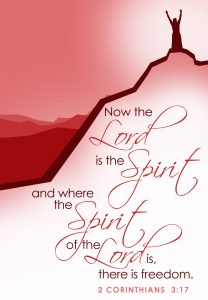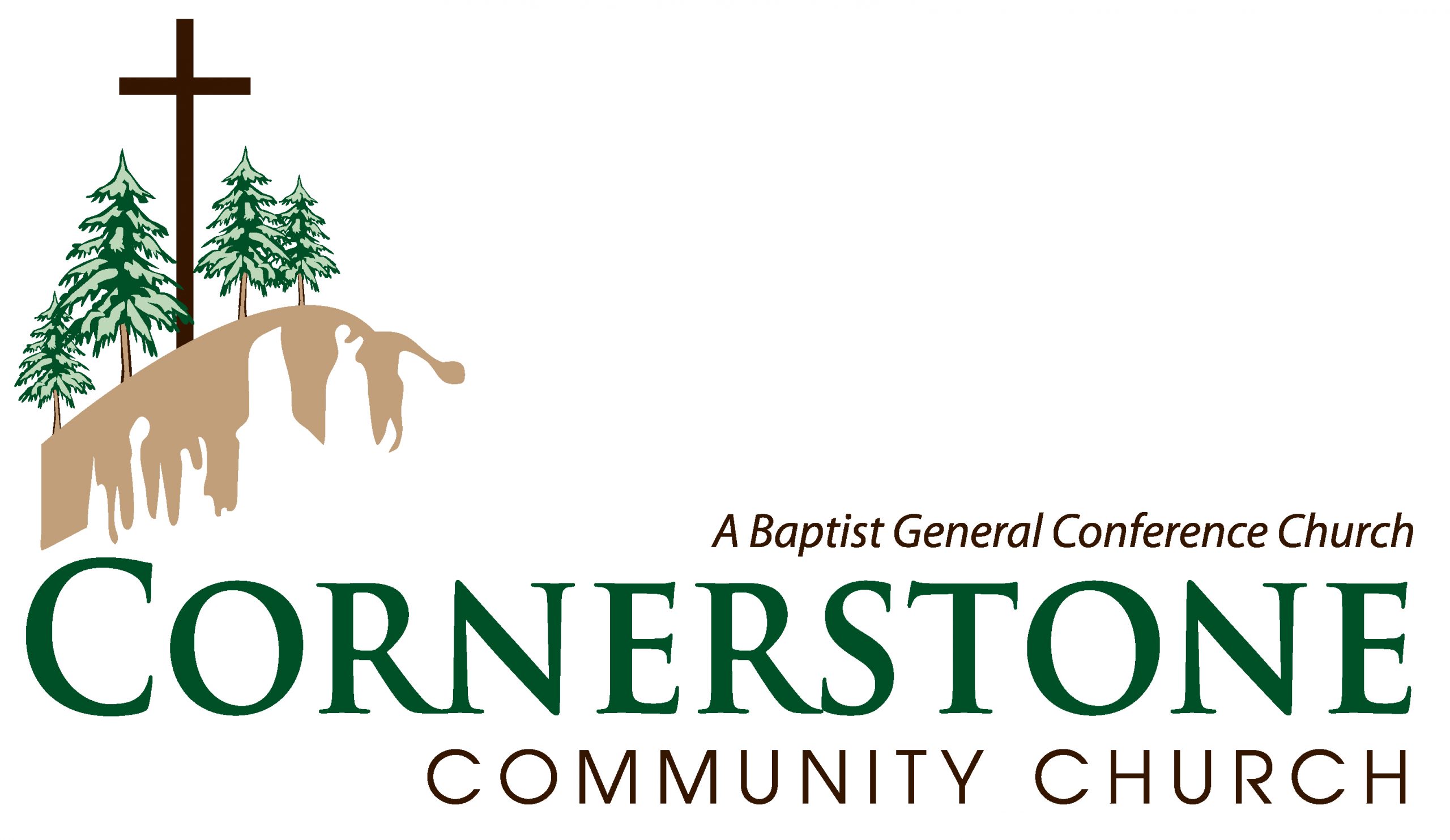
Free Slaves
 Freedom is no alien concept to the word of God. Jesus said,
Freedom is no alien concept to the word of God. Jesus said,
“If you abide in my word, you are truly my disciples,and you will know the truth, and the truth will set you free.” (John 8:31-32 (ESV)
and
So if the Son sets you free, you will be free indeed. (John 8:36 (ESV).
In the city of Pisidian Antioch, Paul and his companions entered the local synagogue one Sabbath day and sat down among the gathered worshipers. After the scrolls of the Law and the Prophets had been read, the leaders of the synagogue sent a message to the visitors. “Brothers,” they invited,” if you have any word of encouragement for the people, say it.” So Paul stood up and preached the gospel. He briefly recounted the history of Israel as God’s sovereign preparation of the world for the coming of the Messiah. He reminded his audience of David and the covenant God made with him that there would always be a descendant of his to sit upon the throne of Israel. He then gets to the point of his reflection on providence:
“Of this man’s offspring God has brought to Israel a Savior, Jesus, as He promised.”
Paul continues by recounting Jesus’ death on the cross at the hands of the elders and people in Jerusalem. He recounts the burial of Jesus and His resurrection, pointing out that by raising Jesus from the dead God fulfilled for their children promises made to the fathers. He then makes this glorious application of God’s truth to his audience:
Let it be known to you therefore, brothers, that through this man forgiveness of sins is proclaimed to you,and by him everyone who believes is freed from everything from which you could not be freed by the law of Moses.(Acts 13:38-39 (ESV)
Freedom is a theme Paul takes seriously and expounds often. In Romans 6:17-18, He writes,
But thanks be to God, that you who were once slaves of sin have become obedient from the heart to the standard of teaching to which you were committed, and, having been set free from sin, have become slaves of righteousness.
And in Romans 6:22 he writes,
But now that you have been set free from sin and have become slaves of God, the fruit you get leads to sanctification and its end, eternal life.
In Romans 8:2 he concludes,
For the law of the Spirit of life has set you free in Christ Jesus from the law of sin and death,
and let us not overlook 2 Corinthians 3:17,
Now the Lord is the Spirit, and where the Spirit of the Lord is, there is freedom,
or these two important exultations in the letter to the Galatians:
Galatians 5:1 (ESV) For freedom Christ has set us free; stand firm therefore, and do not submit again to a yoke of slavery.
Galatians 5:13 (ESV) For you were called to freedom, brothers. Only do not use your freedom as an opportunity for the flesh, but through love serve one another.
Peter joins the chorus of freedom in his first letter:
1 Peter 2:16 (ESV) Live as people who are free, not using your freedom as a cover-up for evil, but living as servants of God.
And the apostle John points us to Jesus as the source of this freedom as he introduces the message of the Revelation:
Revelation 1:4-5 (ESV) 4 John to the seven churches that are in Asia: Grace to you and peace from him who is and who was and who is to come, and from the seven spirits who are before his throne, 5 and from Jesus Christ the faithful witness, the firstborn of the dead, and the ruler of kings on earth. To him who loves us and has freed us from our sins by his blood . . .
The point of this survey is this, the Bible invites us to freedom in Christ through faith in Christ, freedom from sin and freedom from slavery to the fear of death; freedom from guilt and shame before God, freedom from condemnation, freedom to fulfill the purpose for which we are born into the world. What the Bible does not invite us into is anarchy, an unbounded personal freedom without relative limit, moral boundary, or eternal purpose. God offers us freedom in relation to Him not in independence from Him. The savage and sinful cry of unredeemed human culture is for a freedom without responsibility or accountability, a self-centered self-indulgence that cares nothing for consequences either for itself or for others, seeking only the fleeting delights of personal pleasure and pride, a self-serving freedom that rejects God, His sovereignty over creation, His authority over the human will. What the world wants, what the sinful human heart wants is not freedom to enjoy the blessings of God in covenant but independence from God to be its own god.
The freedom God offers in his word, the freedom that comes through faith in Christ, is real freedom from bondage to sin, freedom from oppression by guilt, freedom from servitude to the evil desires exploited by the evil one. But this grace extended freedom is not freedom without context or definition. Bob Dylan once sang an insight that fits here: “You gotta serve somebody!” Real freedom always comes within a context of relationship. We are free to be as evil as we will in our rejection of God and exultation of ourselves or we will be free to be as righteous as Christ in our love for God and submission to His good and glorious will. One way or the other, “You gotta serve somebody.” You can be set free from someone or something, but you will always be set free to someone or something else. “You gotta serve somebody.”
The freedom God offers is freedom to choose who and how and why to serve. The freedom God offers is freedom to receive eternal life rather than death as a benefit of our service. The freedom God offers through faith in Christ is the freedom to find and experience real joy, abundant grace, genuine love, heart-settling peace. It is the freedom to genuinely matter in the world. It is the freedom of a worthwhile existence.
But, the freedom that God offers is a freedom fully enjoyed in context. Paul, a man most aware of the freedom he has in Christ, identifies himself as a doulos of Christ Jesus (Romans 1:1). The ESV translates this word as “servant.” The most popular English versions follow suit. “Servant” is nicer than “slave.” Even “bondservant” is nicer than “slave.” “Bondservant” allows some connotation of personal choice, some measure of self-determination, some semblance of equality in the relationship. “Servant” and “bondservant” both preserve that idea of personal independence so valued by sinful human hearts and cultures. But let’s get real. Doulos means slave.
Paul applies to himself, and ultimately to all true believers, a Greek word that denotes a person who is, in the social construct of the day, barely a person at all. A slave is not free. A slave is owned by someone else. A slave’s will belongs to his master. A slave’s body belongs to his master. A slave’s efforts, energy, labor, and production all belong to the master. A slave’s opportunities, and purpose, and plans, and desires belong to the master. A slave has no hope but what is supplied by the master. A slave’s identity is defined by his master. His freedom is utterly dependent on his master.
Paul’s use of the word doulos (slave) is intentionally shocking. He means to make a point that shakes his readers to the very core of their personal reality. Paul exalts a word, a concept, a reality most would reject. The question is, why? What is his point? Here are some ideas Paul may have had in mind:
- Whatever the believer’s past life of self-determination has been, it is left behind to serve Christ alone.
- What goals and ambitions we had for ourselves we have abandoned for the goals and ambitions of Christ alone.
- What challenges and experiences we encounter in the present, we receive them as from the Master and seek His will and glory in them, for we are Christ’s alone.
- Whatever objections may arise in us related to the revealed will of God, either in His word or in our experience through the Spirit, we silence and surrender to His will without argument or negotiation.
- Whatever we may enjoy of good or prosperity we account with thanksgiving and praise to Christ alone.
- Whatever sorrow or setback we may suffer, we account to the will of Christ, with joy and with faith and with obedient endurance.
- We consider our self, our life, our loves not our own but the Master’s, for we are not our own. We are bought with a price, the precious blood of Jesus. We are, by faith and love, His slaves alone.
- Whatever we desire of this world and what it offers we will always filter through the screen of potential loss in our relationship with Jesus. Our desires belong to Him and no loss of Him in exchange for a counter-desire of ours is acceptable.
Paul writes, as a slave of Christ Jesus, that we have received grace (Romans 1:5). We have received a gift from God that we did not deserve, could not earn, or buy, or steal. This gift is simply unattainable through human effort. It can only be received through the divine will and action. A slave of Christ is the recipient of grace through no merit of their own but through the will and work of God alone.
That makes “slavehood” a privilege to be treasured rather than a prison to flee. Because of grace I am free to obey God and reap the benefits of faithfulness. I am free to enjoy God and reap the benefits of a loving relationship with my Creator. I am free to mature and grow and become the person God ordained me to be, fulfilling His purpose for my life, gaining meaning for myself in an otherwise meaningless world. I am free, through the gift of grace, to abound, to flourish, to increase more and more in love, and wisdom, and knowledge, and in the likeness and glory of Christ Himself! And all of this, as a slave, under the will of a good and loving Master who has demonstrated the full extent of His love for me by dying on the cross in my place on my behalf for my sins.
The question we now face is this: Since we are slaves of Christ through faith in him and as an act of grace from God, how do we fulfill our service? What form does it take? What quality does it have? What devotion and intention do I bring to the role I have been graced to receive? What singularity of heart and spirit and mind and will do I bring to this relationship of slave and Master? What submission? What surrender?
Next time, we’ll explore some New Testament descriptions of this special relationship between the Master, Christ, and the doulos.


Linda Mcintire
July 22, 2021 11:12 AMA Spirit inspired teaching packed with truth and a divine call for grateful acceptance, not to mention loads of conviction!